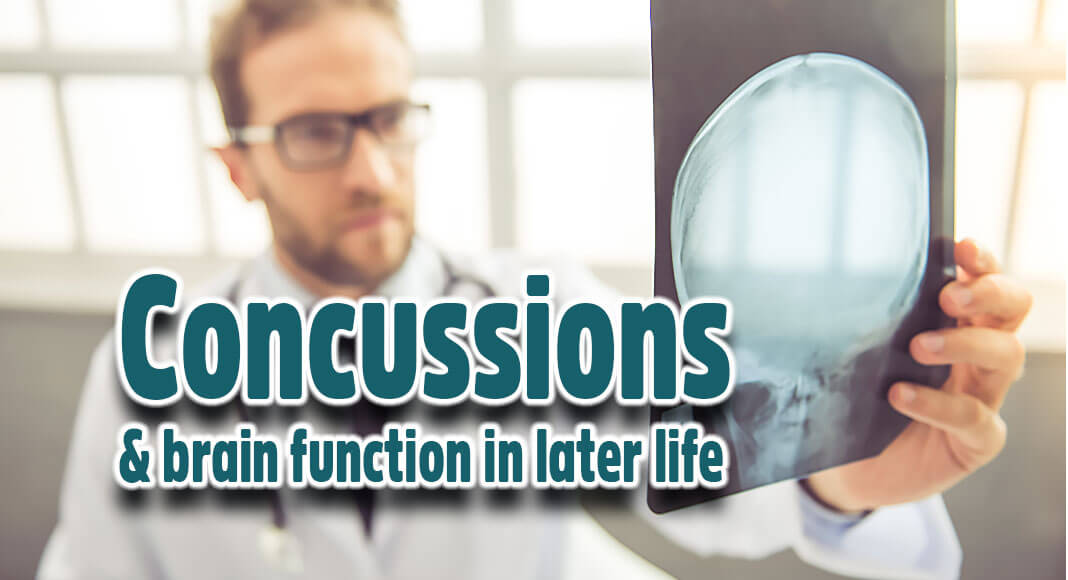
Mega Doctor News
Newswise — Experiencing three or more concussions is linked with worsened brain function in later life, according to major new research.
The study – the largest of its kind – also found having just one moderate-to-severe concussion, or traumatic brain injury (TBI), can have a long-term impact on brain function, including memory.
Led by teams at the University of Oxford and the University of Exeter, the research included data from more than 15,000 participants of the online PROTECT study, who were aged between 50 and 90 and based in the UK. They reported the severity and frequency of concussions they had experienced throughout their lives, and completed annual, computerized tests for brain function.
Published in the Journal of Neurotrauma, the paper found that people who reported three or more concussions had significantly worse cognitive function, which got successively worse with each subsequent concussion after that. Attention and completion of complex tasks were particularly affected.
Researchers say people who have had concussions should be warned of the dangers of continuing high-risk sport or work.
Lead investigator Dr Vanessa Raymont, from the University of Oxford, said: “We know that head injuries are a major risk factor for dementia, and this large-scale study gives the greatest detail to date on a stark finding – the more times you injure your brain in life, the worse your brain function could be as you age.
“Our research indicates that people who have experienced three or more even mild episodes of concussion should be counselled on whether to continue high-risk activities. We should also encourage organizations operating in areas where head impact is more likely to consider how they can protect their athletes or employees.”
The team found that participants who reported three episodes of even mild concussion throughout their lives had significantly worse attention and ability to complete complex tasks. Those who had four or more mild concussion episodes also showed worsened processing speed and working memory. Each additional reported concussion was linked to progressively worse cognitive function.
Furthermore, the researchers found that reporting even one moderate-to-severe concussion was associated with worsened attention, completion of complex tasks and processing speed capacity.
In the online PROTECT study, participants share detailed lifestyle information, and complete a suite of cognitive tests every year, for up to 25 years. This rich mine of data helps researchers understand how the brain ages, and the factors involved in maintaining a healthier brain in later life.
Dr Helen Brooker, a study co-author from the University of Exeter, said: “As our population ages, we urgently need new ways to empower people to live healthier lives in later life. This paper highlights the importance of detailed long-term studies like PROTECT in better understating head injuries and the impact to long term cognitive function, particularly as concussion has also been linked to dementia. We’re learning that life events that might seem insignificant, life experiencing a mild concussion, can have an impact on the brain. Our findings indicate that cognitive rehabilitation should focus on key functions such as attention and completion of complex tasks, which we found to be susceptible to long-term damage.”
Dr Susan Kohlhaas, Director of Research at Alzheimer’s Research UK, said:
“Studies like this are so important in unravelling the long-term risks of traumatic brain injury, including their effect on dementia risk. These findings should send a clear message to policy makers and sporting bodies, who need to put robust guidelines in place that reduce risk of head injury as much as possible.”
The PROTECT study is conducted entirely online, and is open to new participants aged 40 and over. To find out more, visit: https://www.protectstudy.org.uk
The research included collaboration with University of New South Wales, Australia, Kings College London and University College London, UK, Stavanger University Hospital in Norway and Harvard Medical School, in the US. The. paper is entitled ‘Lifetime TBI and cognitive domain deficits in late life: The PROTECT-TBI cohort study’, published in the Journal of Neurotrauma.













